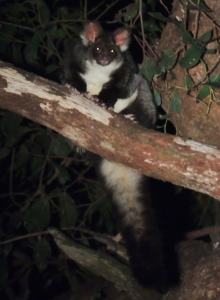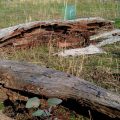A Wild Encounter with A furry Tree Dweller
Did you know that the Mid-Western region is home to Australia’s largest gliding fauna species, the Greater Glider? This amazing tree dweller can glide a horizontal distance of 100 meters, including direction changes of up to 90 degrees.
Suppose you want to try and spot one of these magnificent animals. In that case, your best chances are along the Great Dividing Range, particularly in the West of the Wollemi National Parks in locations such as Ganguddy-Dunns Swamp and Ferntree Gully. These areas are preferred as the Gliders require intact eucalypt forests and woodlands rather than cleared habitat.
Greater Gliders shelter in large tree hollows and feed exclusively on eucalypt leaves, buds, flowers and mistletoe, so to spot one; you will need to look high up in the treetops. Their head and body length measure up to 450mm, and they have a long furry tail measuring up to 600mm. Their large ears and brightly reflective eyeshine in the beam of a spotlight make them easy to detect.

Watershed Landcare has been running a series of “Wild Encounter” bird and spotlight walks across the region. Attendees have been able to wander through some of our finest bird watching sites and learn from expert guides about the species they see and hear and local threatened species like the Greater Glider. The final walk, which is now fully booked, is being held this Sunday at Putta Bucca Wetlands.
Watershed Landcare supports the Wild Encounters program through funding from the Australian Government’s Communities Environment Program.
If you want to learn more about threatened species in our local area, then check out Watershed Landcare’s new factsheet series, or for more information on the Wild Encounters project contact Bethany Greenfield, Project Coordinator by email: beth.greenfield@watershedlandcare.com.au





